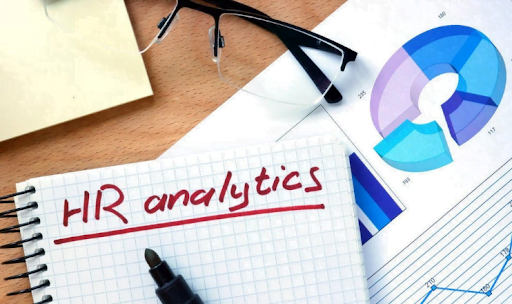A business administration or human resources bachelor’s degree and relevant HR Analytics certification courses. You can also look for HR Analytics courses online to gain knowledge and expertise in this field.
Who is an HR Analyst?
A human resources analyst is in charge of gathering, organizing, and analyzing human resources data to conclude that aid in streamlining all procedures. Additionally, they are in charge of making sure that by gathering pertinent data as needed, all managers within the company are kept informed of the progress of questions, issues, and concerns.
HR analysts use a lot of data to gather crucial information for business management decisions. For instance, HR analysts compile data on pay for particular job openings, examine employee satisfaction survey results, assess training outcomes, and more.

Because of this, every organization that wants to make data-driven decisions and ensure that those decisions have the desired effects employs HR analysts to gather and process data for such purposes. In addition, HR analysts are used by these organizations’ human resources teams to facilitate smoother HR operations.
To succeed as an HR analyst, you must possess solid human resources knowledge and abilities. Check out HR analytics certifications at Protouch if you want to pursue a reputed certification that will prepare you to become a skilled HR professional and also help you to land a job.
Duties of an HR Analyst
While each organization has its own set of duties, the following are some fundamental responsibilities that are included in every job description for an HR analyst:
Compile HR metrics and data from payroll data and the human resource information system (HRIS)
Compile and distribute government labor statistics, new employment laws, and other related information.
Create assessments for both current and prospective employees, and maintain employment records.
Recommending regulations that will enhance corporate culture and ways to find the best candidates for open positions.
Evaluating positions, reviewing both new and existing positions, and reporting the findings to senior management.
Determining the factors that influence job candidates’ and employees’ decisions, and suggesting ways to improve the workplace.
Provide data and statistics for trends and patterns to support hiring processes.
Results of the most recent employee performance reviews
Examine the methods used by competitors and recommend solutions to the management.
Inform staff members of company policies and HR procedures.
Make reports of the data’s findings and present them to senior leadership.
Recognize and offer targets, milestones, and benchmarks for important

General Qualities required to become an HR Analyst:
For becoming an HR Analyst, one should possess the following general attributes:
1) Analytical mindset- First and foremost, you should have an analytical mindset to manipulate and convert a large amount of data into actionable solutions.
2) System Analysis- Following that, you must be able to quickly comprehend how databases, systems, and processes function. Additionally, you should constantly look for ways to increase efficiency while also utilizing the information at your disposal.
3) Detail-orientedness- Finally, you must identify the smaller issues that may have a significant commercial impact on the business as an analyst in addition to evaluating high-level trends.
4) Consultation and communication- As an HR Analyst, you must interact with the business, manage stakeholders and their expectations, and communicate the outcomes of an analytics project to the appropriate audiences whether you spend the majority of your time analyzing data or only a small portion of it.
5) Relationship management- Managing stakeholders and relationships is essential for analysts. For analytics to be successful, expectation management is necessary. Additionally, you must keep the company informed about the analytics project’s status and any potential setbacks.
6) Awareness of cultures around the world- You use global data in your work as an analyst. Understanding where data comes from and how cultural differences affect HR and data capturing practices requires having a global and cultural awareness.
Qualifications required to become an HR Analyst
A business administration or human resources bachelor’s degree and relevant HR Analytics certification courses. You can also look for HR Analytics courses online to gain knowledge and expertise in this field.
Both work experience in HR and HRIS system experience are advantages. Additionally, having relevant experience with the organization’s tools and systems is very advantageous. Tableau, PowerBI, Qlik, SAP, SuccessFactors, and other tools are examples.
MS Excel proficiency is a requirement. The majority of businesses still employ this, and it is typically regarded as elementary knowledge of how to use pivot tables to analyze large amounts of data and combine worksheets.
Familiarity with employee benefits, payroll, and other HR functions.
Excellent communication skills both in writing and speaking and thorough knowledge of labor laws.
Your takeaway
The HR Analyst role is extremely varied, and job descriptions between companies can vary greatly in terms of the level of technical skill required.
You should check out the HR Analyst Course at Protouch, it is among the best hr analytics course. You will gain knowledge of how to report and examine HR data in this course. Protouch is one of the most admired talent transformational and reskilling organizations enabling people to rise up their career ladders. Our training programs are developed to take you to the next level!





Leave a Reply